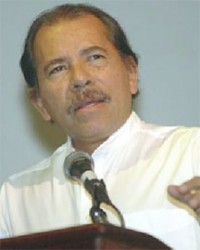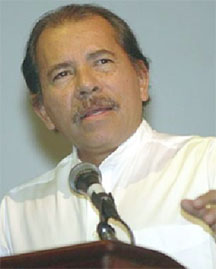MANAGUA, (Reuters) – Nicaragua’s national assembly yesterday approved a constitutional change to remove presidential term limits, which could allow incumbent Daniel Ortega stay in power for years and raises concerns about democracy in the country.

Approval of the plan put forward last month by Ortega’s ruling Sandinista National Liberation Front must now be ratified by the assembly next year before it can take effect. That ratifying vote is likely in January or February.
The 68-year-old Ortega, a prominent Cold War antagonist of the United States, has yet to say publicly whether he wants to run again for the presidency in 2016.
Ratification would make the impoverished Central American country the latest in a string of Latin American nations from Bolivia to Ecuador to give presidents power extending beyond their traditional limits.
The U.S. government has criticized the plan, saying it could undermine democracy in Nicaragua and hurt the country’s economic development. Opposition politicians in Nicaragua have also attacked the plan.
Nicaragua’s law had set a two-term limit for presidents but that was overridden by a controversial Supreme Court ruling that allowed Ortega to run for office again in 2011.
Ortega, a former Marxist guerrilla and ally of the late Venezuelan leader Hugo Chavez, has been president since 2007. He first took power after Nicaragua’s 1979 revolution and was formally elected president for a single term in 1984.
His government was convulsed by a civil war that pitted his Sandinistas against right-wing Contra rebels backed by the administration of U.S. President Ronald Reagan.
After the Sandinistas lost power in 1990, the opposition banned re-election with a clause in the 1995 constitution.

